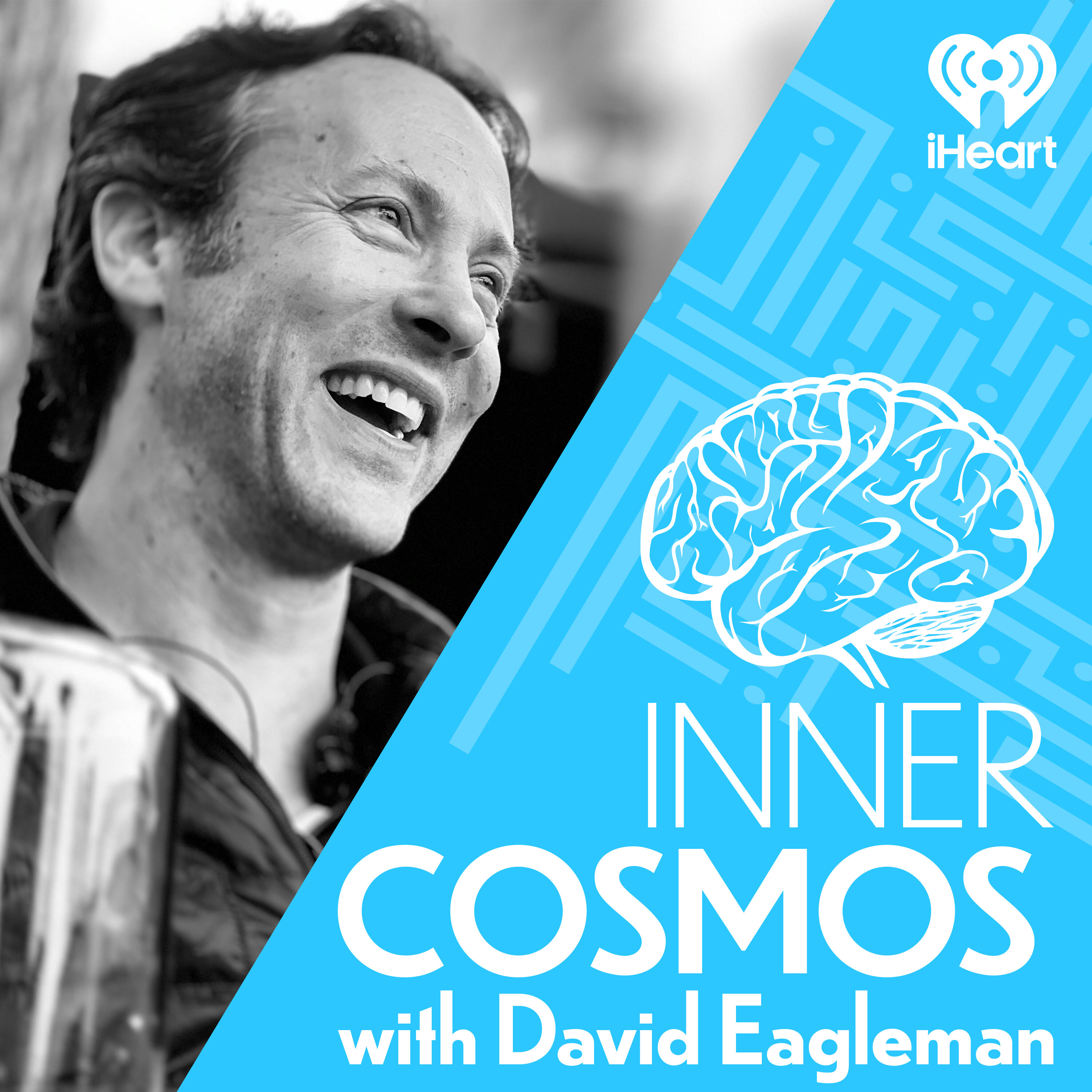

Inner Cosmos with David Eagleman
iHeartPodcasts
Neuroscientist and author David Eagleman discusses how our brain interprets the world and what that means for us. Through storytelling, research, interviews, and experiments, David Eagleman tackles wild questions that illuminate new facets of our lives and our realities.
Episodes
Mentioned books

8 snips
Feb 16, 2026 • 37min
Ep141 "What do brains and weather systems have in common?" with Nicole Rust
Nicole Rust, neuroscientist and author of Elusive Cures, argues for reframing the brain as a complex, feedback-driven system. She compares brains to weather systems and explores why linear, single-target approaches fail for psychiatric and neurodegenerative disorders. They discuss serendipity in drug discovery, landscape models of neural activity, and how large-scale recordings plus AI could reshape neuroscience research.

34 snips
Feb 9, 2026 • 1h 21min
Ep140 "How does your brain decide what’s true?" with Sam Harris
Sam Harris, public intellectual and neuroscientist known for writing on rationality and consciousness, joins to probe why beliefs stick. He discusses belief as brain-driven action, the social roots of truth, why debunking fails, identity’s role in stubbornness, and how science and politics shape disagreement. Short, sharp takes on belief formation and its societal stakes.

74 snips
Feb 2, 2026 • 58min
Ep139 "What does alignment look like in a society of AIs?" with Danielle Perszyk
Danielle Perszyk, a cognitive scientist who leads human-computer interaction at Amazon’s AGI Lab. She explores intelligence as social alignment. They discuss communicative drive, neural synchrony, and how conversation stabilizes shared concepts. She outlines building agents that model minds, coordinate with one another, and support personalized learning while avoiding human flaws.

66 snips
Jan 26, 2026 • 1h 8min
Ep138 "Why do our political brains mistake opinion for truth?" with Kaizen Asiedu
Kaizen Asiedu, a philosopher-turned-political commentator who runs Clear Thinker, discusses why certainty in politics often feels truer than it is. He explores why conspiracies thrive, how social identity and outrage entrench beliefs, and why simple, emotional narratives beat complex truth. Conversation covers teaching clearer reasoning, social media’s amplification, and using AI and debate training to raise the rhetorical bar.

24 snips
Jan 19, 2026 • 47min
Ep137 "Do cures ever create the next crisis?" with Thomas Goetz
In this discussion, Thomas Goetz, a science journalist and author focused on medicine, dives into the complex reality of medications. He explores how modern diseases, like obesity and anxiety, may be products of our environment rather than just individual flaws. With a fascinating look at GLP-1 drugs, Goetz debates the societal implications of dependency on pills versus structural influences on health. He emphasizes the unintended consequences of medications and the evolving relationship between society and pharmaceutical solutions.

24 snips
Jan 12, 2026 • 42min
Ep136 "Why do we care about mattering?" with Rebecca Goldstein
In this engaging discussion, philosopher and author Rebecca Goldstein dives into the concept of 'mattering'—the fundamental human need to feel significant. She explores how mattering underpins happiness, ambition, and even depression, linking unmet desires for significance to broader societal issues like polarization and extremism. Goldstein presents strategies for realizing one's mattering, illustrates with stories like that of Scott Joplin, and offers advice for individuals struggling to find their sense of worth. A thought-provoking conversation on what it truly means to matter!

8 snips
Jan 5, 2026 • 55min
Ep135: What does neuroscience mean by hypnosis? with David Spiegel
David Spiegel, a Stanford psychiatrist and hypnosis expert, dives into the fascinating world of hypnosis, demystifying its clinical applications for pain, anxiety, and habit change. He explains how attention and expectation can reshape our experiences, revealing the brain’s pathways. Hypnosis is contrasted with meditation and flow states, emphasizing its intentionality. Spiegel discusses its proven effectiveness in medical settings, barriers to broader acceptance, and the potential of his Reverie app for accessibility in therapeutic hypnosis.

12 snips
Dec 29, 2025 • 29min
Ep82 Re Broadcast "Why Do Your 30 Trillion Cells Feel Like a Self?" Part 1
Explore the fascinating puzzle of selfhood and continuity in a constantly changing body. The ship of Theseus sparks a debate on identity amidst cellular turnover. Delve into how memories can shift our perception of self, revealing the instability of personal recollections. Consider thought experiments about age in an afterlife and the peculiar End-of-History illusion that leads us to underestimate future changes in beliefs and preferences. Join a journey through the fluid nature of identity and how we navigate our future selves.

8 snips
Dec 22, 2025 • 34min
Ep70 Re Broadcast "Why do our memories drift? Part 1: The War of the Ghosts"
Explore how medieval artwork misrepresented lions, revealing insights about memory construction. David Eagleman discusses the 'telephone game' analogy, illustrating how memories distort over time. Discover the impact of cultural schemas on narrative recall and the role of interference from new memories in memory fading. Hear about studies on eyewitness suggestibility and the surprising reliability of flashbulb memories like those from 9/11. The conversation dives into how these memory drifts affect our identities and personal narratives.

46 snips
Dec 15, 2025 • 1h 16min
Ep134 "What do brains teach us about morality?" with Joshua Greene
Joshua Greene, a Harvard psychologist and philosopher, dives into the intricacies of moral judgment. He explores why our instincts clash with modern dilemmas like pandemics and AI, shedding light on moral decision-making. Greene discusses how emotional impulses often override rational choices, using examples like trolley problems. He introduces 'moral technologies' designed to enhance charitable giving and discusses Tango, a game intended to reduce political polarization. This conversation reveals how understanding our moral brains can lead to more effective collective actions.


